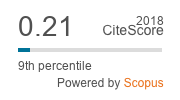The Reliability of the Zulliger Test (2009-2019): Case Studies
DOI:
https://doi.org/10.1590/0102.3772e38514.en%20Palabras clave:
Psychological assessment, Personality traits, Longitudinal studies, Projective techniques, AdultsResumen
This study aimed to verify the reliability of the Zulliger test (ZSC) and the individuals' personality characteristics over 10 years (2009-2019), using a (test-retest) design. Four adults, non-patients, between 18 and 52 years of age participated in this study. Instruments: structured interview, the ZSC and the Social Skills Inventory (IHS2-Del-Prette). The analyses considered the interpretative differences of 59 ZSC variables between the first (2009) and second (2019) applications, the interview data and the IHS2-Del-Prette. The results demonstrated temporal stability for most (70%) of the variables of the ZSC after 10 years of testing and contemplated the main interpretative findings. The interview data and the IHS2-Del-Prette added to the data of the ZSC regarding the individuals' personality characteristics and emotional state.
Descargas
Citas
Associação Brasileira de Empresas de Pesquisa. (2016). Dados com base no Levantamento Sócio Econômico 2015 http://www.abep.org/criterio-brasil
Bornstein, R. F. (2017). Evidence-based psychological assessment. Journal of Personality Assessment, 99(4), 435-445. https://doi.org/10.1080/00223891.2016.1236343
Cardoso, L., Gomes, G., Pacheco, F., & Viana, J. (2018). Análise da produção de artigos científicos brasileiros sobre o Teste de Zulliger.Interação em Psicologia, 22(3). https://doi.org/10.5380/psi.v22i3.45821
Del Prette, Z. A. P., & Del Prette, A. (2018). Inventário de Habilidades Sociais (IHS2- Del- Prette): Manual de aplicação, apuração e interpretação Casa do Psicólogo.
Del Prette, Z. A. P., Del Prette, A., & Peixoto, E. M. (2020). Social Skill Inventory-2 Del-Prette: Expanding and updating psychometric properties. Estudos em Psicologia, 38, E190124. https://doi.org/10.1590/1982-0275202138e190124
Exner Jr., J. E. (1986 /2003). The Rorschach: A comprehensive system - Vol. I: Basic foundations (2a. ed.). Wiley & Sons.
Exner Jr., J. E., Armbruster, G. L., & Viglione, D. (1978). The temporal stability of some Rorschach features. Journal of Personality Assessment, 42(5), 474-482. https://doi.org/10.1207/s15327752jpa4205_6
Grazziotin, J. B. D. D., & Scortegagna, S. A. (2016). Revisão de pesquisas brasileiras sobre o Teste de Zulliger publicadas em artigos. Avaliação Psicológica,15(2), 227-235. https://doi.org/10.15689/ap.2016.1502.11
Grazziotin, J. B. D. D., & Scortegagna, S. A. (2018). Convergent validity of Zulliger-CS with the Social Skills Inventory for the Elderly. Paidéia, 28, e2832. https://doi.org/10.1590/1982-4327e2832
Grazziotin, J. B. D. D., & Scortegagna, S. A. (2021). Validity of Zulliger-SC in the Cognitive Assessment of elderly and Long-Lived Adults. Psico-USF, 26(3).571-583. https://doi.org/10.1590/141382712021260314
Gonçalves, A. P., Zuanazzi, A. C., & Villemor-Amaral, A. E. (2019). Aplicação R-otimizada no Zulliger: Evidências de validade com pacientes depressivos.Avaliação Psicológica,18(2), 111-120. http://dx.doi.org/10.15689/ap.2019.1802.16215.01
Gronnerod, C. (2003). Temporal stability in the Rorschach method: A meta-analytic review. Journal of Personality Assessment, 8(3), 272-293. https://doi.org/10.1207/S15327752JPA8003_06
Hartmann, E., Halvorsen, M., & Wang, C. E. A. (2013). Rorschach variables and dysfunctional attitudes as measures of depressive vulnerability: A 9-year follow-up study of individuals with different histories of major depressive episodes.Journal of Personality Assessment, 95(1), 26-37. https://doi.org/10.1080/00223891.2012.713881
Levitt, H. M., Bamberg, M., Creswell, J. W., Frost, D. M., Josselson, R., & Suárez-Orozco, C. (2018). Journal article reporting standards for qualitative primary, qualitative meta-analytic, and mixed methods research in psychology: The APA Publications and Communications Board task force report. American Psychologist, 73(1), 26-46. http://dx.doi.org/10.1037/amp0000151
Landis, J. R., & Koch, G.G (1977). The measurement of observer agreement for categorical data. Biometrics, 33(1), 159-174. https://doi.org/10.2307/2529310
Mathieu, M., Eschleman, K. J., & Cheng, D. (2019). Meta-analytic and multiwave comparison of emotional support and instrumental support in the workplace. Journal of Occupational Health Psychology, 24(3), 387-409. https://psycnet.apa.org/doi/10.1037/ocp0000135
» https://psycnet.apa.org/doi/10.1037/ocp0000135
Meyer, G. J., & Archer, R. P. (2001).The hard science of Rorschach research: What do we know and where do we go? Psychological Assessment, 13(4), 486-502. https://doi.org/10.1037/1040-3590.13.4.486
Meyer, G.J. (2017). What Rorschach performance can add to assessing and understanding personality. International Journal of Personality Psychology, 3(1), 36-49. https://ijpp.rug.nl/article/view/29881/27195
Miguel, F. K., Zuanazzi, A. C., & Villemor-Amaral, A. E. (2017). Avaliação de aspectos da inteligência emocional nas técnicas de Pfister e Zulliger. Temas em Psicologia,25(4), 1853-1862. https://doi.org/10.9788/tp2017.4-17pt
» https://doi.org/10.9788/tp2017.4-17pt
Perreault, M., Power, N., Touré, E. H., & Caron, J. (2020). Transitional employment and psychological distress: A longitudinal study. Psychiatric Quarterly, 91(3), 735-747. https://doi.org/10.1007/s11126-020-09739-0
Souza, A. C., Alexandre, N. M. C., & Guirardello, E. B. (2017). Propriedades psicométricas na avaliação de instrumentos: Avaliação da confiabilidade e da validade. Epidemiologia e Serviços de Saúde,26(3), 649-659.https://doi.org/10.5123/S1679-49742017000300022
Sultan, S., Adronikof, A., Réveillére, C., & Lemmel, G. (2006). A Rorschach stability study in a nonpatient adult sample. Journal of personality Assessment, 87(3), 330-348. https://doi.org/10.1207/s15327752jpa870313
Sultan, S., & Meyer, G. (2009). Does productivity impact the stability of Rorschach scores? Journal of Personality Assessment, 91(5), 480-493. https://doi.org/10.1080/00223890903088693
Villemor-Amaral, A. E. & Gomes, G. V. A (2020). Comparação de Indicadores Patológicos e Saudáveis do Zulliger com Administração R-Otimizado. Psicologia: Teoria e Prática, 22 (3), 37-54. http://dx.doi.org/10.5935/1980-6906/psicologia.v22n3p37-54
Villemor-Amaral, A. E. d., Machado, M. A. d. S., & Noronha, A. P. P. (2009). O Zulliger no sistema compreensivo: Um estudo de fidedignidade. Psicologia: Ciência e Profissão, 29(4), 656-671. https://doi.org/10.1590/S1414-98932009000400002
Villemor-Amaral, A. E., Pianowski, G., & Carvalho, L, F. (2016). Issues about color, human movement and number of responses in the Zulliger test. Rorschachiana: Journal of the international society for the Rorschach 37(2), 95-113. https://doi.org/10.1027/1192-5604/a000068
Villemor-Amaral, A. E., & Primi, R. (2009). Teste de Zulliger no Sistema Compreensivo ZSC: Forma individual Casa do Psicólogo.
Wechsler, S. M., Hutz, C. S., & Primi, R. (2019). O desenvolvimento da avaliação psicológica no Brasil: Avanços históricos e desafios. Avaliação Psicológica,18(2), 121-128. https://doi.org/10.15689/ap.2019.1802.15466.02
Descargas
Publicado
Cómo citar
Número
Sección
Licencia
Derechos de autor 2022 Jucelaine Bier Di Domenico Grazziotin, Silvana Alba Scortegagna

Esta obra está bajo una licencia internacional Creative Commons Atribución 4.0.



